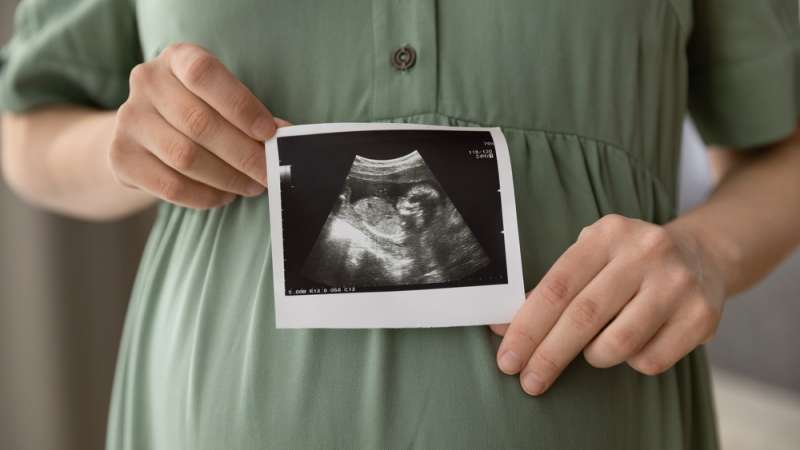Our Child Law Services
Expert Child Law Services: Compassionate Legal Support for Families
Our experienced team of family law solicitors are experts in dealing with matters concerning children. We understand that what is right for one family may not be right for another.
Our experienced solicitors can assist you in negotiating child arrangements best suited to your personal circumstances. Seeking legal advice at an early stage can minimise the risk of formal court proceedings, which can cause delay and create more animosity.
Mediation is often the first step to consider before exploring Court Orders. This is where a professional mediator will meet with both parties and try to arrive at a mutual agreement without the need for further court proceedings.
However, court proceedings may be the only viable step to take where parties cannot come to an agreement. Our friendly and experienced family law solicitors can advise and represent you during this process.
We deal with people in all situations, including:
- A parent/carer with children living with them
- A parent/carer living apart from children
- Married couples/civil partners
- Same-sex parents
- Guardians
- Grandparents
- Close family relatives
- Step-parents
Our Approach to Child Law
We understand that not seeing your child every day is one of the hardest things about separation.
As members of Resolution, the family team at Myerson are committed to following a non-confrontational approach to resolving family issues.
The Code of Practice promotes a constructive approach to resolving family issues in a manner that considers the needs of the whole family and the best interest of the children after a divorce or civil partnership dissolution.
Our child law solicitors can support and advise you as to your practical and legal options, tailored to your circumstances, as we know that every family is different.
Our experienced team can assist you in negotiating child arrangements best suited to your personal circumstances.
However, court proceedings may be the only viable step to take and we can advise and represent you during this process.
If you would like to talk to us, in confidence, about how we can help, please get in touch.
Why Work With Our Family Team?
- Our specialist family law solicitors are experts in complex, high-value divorce, and family disputes.
- Our family law solicitors are recognised by the Legal 500.
- Our family team are all members of Resolution, the largest organisation of family lawyers in the UK, and are dedicated to dealing with matters in a non-confrontational and constructive way.
- Our team were shortlisted for the family law firm of the year (North) and financial remedies team of the year (National) at the Lexis Nexis Family Law Awards 2022.
- Our team work closely with other departments internally, including property, employment, corporate and commercial lawyers, to ensure that your financial needs are protected comprehensively.
- We provide a partner-led service to ensure you receive the very best legal advice and support for your family law issues.
- We have a large team of expert solicitors and can meet your deadlines.
- We are a full-service law firm operating from a one-site office, which means our teams communicate effectively and efficiently.
- We use the latest technology to ensure that we are working as efficiently. Geographical distance is no bar to us from providing excellent client service.
- We provide regular legal updates via our blogs, social media and local radio appearances.
- Look at the Myerson Promise for further benefits of working with us here.
How Our Family Team Can Help
Child Arrangement Orders
Child Arrangement Order
A Child Arrangement Order (CAO) decides the arrangements for with whom a child is to live with, spend time with or otherwise have contact with.
If you are unable to reach an agreement about the arrangements for your child, then you may wish to apply for a Child Arrangements Order.
This type of order is made under Section 8 of the Children Act 1989.
Child Arrangement Orders are sometimes required following a divorce or separation if parents are unable to agree on the arrangements for the children.
The court may make an order to confirm where a child lives or to confirm contact arrangements. The court may order the following:
- Name one person with whom a child is to live
- Name two persons who live in different households as persons with whom a child is to live
- Direct and indirect contact
- Supervised contact
The arrangements for children are not considered as part of an application for a divorce. A Child Arrangement Order is separate from an application for divorce.
It is important that you receive advice from a family law specialist to help you fill out necessary forms and respond to court letters. Your family solicitor can also advise on the likely outcome of your application for a Child Arrangement Order.
Who can apply for a Child Arrangements Order?
A Child Arrangement Order can be applied for without permission from the court if you fit certain criteria. To apply for a Child Arrangement Order you must fit one of the conditions below:
- A parent, guardian, or special guardian of the child
- An individual who already has Parental Responsibility
- An individual who already has a Residence Order or Child Arrangements Order – live with in respect of the child
- A step-parent who has parental responsibility for a child by virtue of an order or agreement
- Any spouse or civil partner if the child is part of that family
- An individual who the child has lived with for more than three years
If you do not meet the conditions above but would still like to apply for a Child Arrangement Order, it is possible to obtain permission from the courts. For example, grandparents or aunties/uncles may need to obtain permission if they do not meet the requirements above.
If you would like to talk to us, in confidence, about how we can help, please call us on 0161 941 4000, or contact us online.
Specific Issue Order
A Specific Issue Order (SIO) is an order that determines a specific dispute that has arisen or may arise in connection with exercising parental responsibility for a child. This type of order is made under Section 8 of the Children Act 1989.
It can be used to resolve issues about a child’s upbringing such as where a child should go to school, whether they should have a particular form of medical treatment and whether a child can relocate to a different area.
Prohibited Steps Order
A Prohibited Steps Order (PSO) is a court order which prevents either parent from taking certain steps when exercising their parental responsibility for a child without the court’s permission. This type of order is usually made to prevent a person from taking steps such as changing a child's school, changing a child's name, and relocating a child to another part of the country or abroad.
In specific circumstances, it can be possible to make urgent applications to the court and without notice being provided to the other party.
Parents, step-parents with parental responsibility, special guardians and anyone who is named in a child arrangements order as a person with whom the child is to live may apply to the court for a Specific Issue or Prohibited Steps Order without requiring the court's permission to do so.
How does the court decide what should happen?
The welfare of the child is of paramount importance to the court. In exercising its discretion, the court will have regard to:
- The ascertainable wishes and feelings of the child;
- His/her physical, emotional and educational needs;
- The likely effect on him/her of any change in those circumstances;
- His/her age, sex, background, and any characteristics of his which the court considers relevant;
- Any harm which he/she has suffered or is at risk of suffering;
- How capable each of his/her parents, and any other person in relation to whom the court considers the question to be relevant, is of meeting his/her needs; and
- The range of powers available to the Court.
Children & Family Court Advisory & Support Service
When anyone makes an application to the court in respect of children the Children & Family Court Advisory & Support Service (Cafcass) will be involved at an early stage. Cafcass work with children and young people in Family Court cases to make sure that the voices of children are heard, and decisions are made in their best interest. The court may appoint a Cafcass officer to prepare a full report making recommendations for the child concerned.
Parental Responsibility
What is Parental Responsibility?
Parental responsibility is defined in law by the Children Act 1989 as “all the rights, duties, powers, responsibilities and authority which by law a parent of a child has in relation to the child and his property”.
People with parental responsibility are entitled to have a say in major decisions about a child such as:
- Where a child should live
- What name the child should have
- Where they should go to school
- The giving or withholding of medical treatment.
Who has Parental Responsibility?
A child’s mother automatically has parental responsibility. You will have parental responsibility if one of the following scenarios applies:
- A father who is married to, or the civil partner of the child’s mother when the child is born
- A father who is named on the birth certificate of a child born after 1 December 2003
- If you have a Child Arrangements Order – live within your favour
- If you have an adoption order in your favour
- If you are appointed as child’s guardian
Separated parents can both still have parental responsibility even though they are no longer together. If you have parental responsibility, it might not mean you automatically have the right to spend time with your children.
Both parents should be involved and agree on important decisions about the child’s life. If there are any disputes, you can apply for a Specific Order Issue.
How can you obtain Parental Responsibility?
If you do not have Parental Responsibility, there are several ways that you can obtain it. These include:
- Seeking the mother’s agreement to re-register as the child’s father on the birth certificate;
- Seeking the mother’s agreement to enter into a mutual Parental Responsibility agreement;
- Being appointed as the child’s guardian;
- Obtaining a Child Arrangements Order – live with;
- Adopting a child;
- Stepparents and the civil partners of parents can obtain Parental Responsibility if both parents with parental responsibility agree, or by a court order.
What if I cannot reach an agreement?
If an agreement is not possible you can apply to the court for a Parental Responsibility Order. when considering whether to make the order the court will consider the father's commitment and attachment to the child and whether the reasons for applying are genuine.
Generally, the court will make a parental responsibility order unless the father poses a risk to the child or the mother.
Child Relocation
Child relocation
A parent with a Child Arrangements Order confirming that a child lives with them can take the child out of the country for up to 28 days without the consent of the other parent.
Can I move to live abroad with the children?
If one parent wishes to relocate with a child abroad and the parents cannot agree, a court application will be needed. This is known as a leave to remove or relocation application.
Things to consider if you are planning to relocate
If you intend to make a relocation application, it is important that you think through all the practicalities of what life will be like in the new country. A parent who wishes to relocate with their child must put together detailed proposals and the court will want to know your plans including the following:
- Child’s best interest: are the proposals to move in the child’s best interest?
- Reasons for relocating: What are the reasons for the move? Is there a genuine reason for the move, or is it a move designed to thwart contact arrangements between the child and the other parent?
- Child’s education: Proposals for the child’s education, including details of the type of school, its facilities, whether they have space available, whether proper enquiries have been made at the selected school will be considered.
- Accommodation: Proposals about the accommodation selected, with photographs and details about the surrounding area.
- Location: If relocating abroad, a description about the foreign country, and an analysis of any cultural differences in existence, and the impact this might have on the child.
- Flights: Practical information about flight schedules and flight costs and proposals for who pays for flights.
- Parental contact: How will the child keep in touch with the parent on a regular basis? For example, by Skype, FaceTime, Facebook, telephone, or email?
- Impact of relocation: How will the proposals affect the child and the absent parent? The more contact a child has, the greater the impact upon the child.
- Risk of refusal or distress: If the court refused the application, how would this impact upon the parent who wished to move? If that parent were to be extremely distressed at the prospect of a refusal, which would lead to him/her being isolated and having no support network, for example, this might have a detrimental impact upon the child.
When the court considers an application to relocate, its primary concern is the welfare of the child and the court will consider a statutory checklist known as the welfare checklist.
The court may ask the Children and Family Court Advisory and Support Service (Cafcass) to speak to the parents and possibly the children (depending on their ages) and make a recommendation to the court.
The court will consider how permission or refusal to relocate will affect the parents and the children. The court will consider the parent's plans and whether the wish to relocate and opposition is genuine.
The court will consider the interests of the parents but if it is not possible to accommodate everyone’s wishes, the best interest of the child will dictate the outcome.
Can I move to a different part of the UK with the children?
If you wish to relocate within the UK and this is opposed by the other parent, you must apply for a Specific Issue Order for the court to determine whether you can relocate to another part of the country with the children.
The court must apply the same principles to internal relocation cases as to external relocation cases and the welfare of the child will be the courts paramount consideration.
How can I object to a proposed relocation?
If you disagree with a proposed move, you can apply for a Prohibited Steps Order.
If your former spouse or partner has made an application to relocate with your children to another country or a different part of the UK, you will need to explain to the court why you do not agree.
The court will want to hear about the following:
- The current contact arrangements and how these will be impacted.
- Your concerns about how contact will work if the children move and any practical difficulties’.
- Any concerns you have about the proposed relocation and plans.
- The wishes of the children as far as you are aware.
- The impact the proposed move will have on you.
Grandparents' Rights
The family courts recognise the invaluable role that grandparents play in their grandchildren’s lives. If you are having problems seeing your grandchildren, this can be very distressing. Our experienced family solicitors can help you with grandparents' rights and understand what legal rights you have and how you can take steps to see your grandchildren.
Do grandparents have legal rights to see their grandchildren?
Whilst there is a presumption that a child should spend time with a parent, unless there are reasons to the contrary, this same presumption does not apply to grandparents. However, the courts recognise the importance of children having a relationship with extended family members.
Mediation
As a first step, we would advise that you consider mediation to try and reach an agreement outside of court. Mediation is where an independent mediator will speak to you and other parties involved and try to come to a mutual arrangement where both parties are content.
Mediation is usually the best way to resolve these issues as court proceedings can be costly and quite stressful. Our family team will strive to support you throughout the process and advise you on the right decisions for you and your family.
Permission from the courts
Where mediation is unsuccessful, an application may be made to the Family Court for a Child Arrangements Order.
A Child Arrangements Order is an order that regulates the arrangements for a child.
Generally, grandparents do not have an automatic entitlement to apply for a Child Arrangements Order and they must obtain permission from the court before they can apply.
When considering an application for permission the court will consider the following:
- The nature of the proposed application;
- The Applicants connection with the child;
- Any risk that there might be of the proposed application disrupting the child’s life to such an extent that they would be harmed by it;
- Where the child is being looked after by a local authority what the authority’s plans for the child’s future care and the wishes and feelings of the parents;
If permission is granted you will be able to proceed with your application for a Child Arrangements Order
As for all court applications concerning children, the welfare of the child is of paramount importance.
Changing a child's name
Can I change my child’s name?
If you wish to change your child’s name, you will need the written consent of all of those with parental responsibility. This will always include the child’s mother and in most cases, the child’s father.
Parents may wish to change their child’s name due to various reasons.
- To enable a child to have the same surname as a step-sibling or step-parent.
- To double barrel a child’s surname to incorporate both parents’ names
- If a child no longer spends time with the parent whose surname they have
How does it work?
Provided that all the people who need to give consent have done so, a change of name deed can be prepared. Everyone with parental responsibility for the child needs to sign the deed and their signatures need to be witnessed.
Our family solicitors can assist you with the preparation of a change of name deed.
What if we cannot agree?
Our family solicitors can advise on how you can resolve the issue amicably via negotiation or mediation. Mediation involves an independent, trained professional mediator speaking to both parties and attempting to agree on a mutual arrangement.
If an agreement cannot be reached an application can be made for a specific issue order for the court to determine whether a child's name can be changed.
Child Maintenance
The Family court has no power to make child maintenance orders save in very limited circumstances.
To work out how much child maintenance is payable, you can use the online Child Maintenance Service calculator.
Child Maintenance Court Orders
The court has limited powers to make orders for child maintenance. An order for child maintenance can only be made by the court when:
- Parents are agreed on the level of maintenance payable. However, after a period of 12 months, either parent can apply for a formal assessment from the Child Maintenance Service as the order is not effective after 12 months;
- There is to be an order for educational expenses including school fees and expenses directly related to education and training school fees order;
- There are disabled children the court can consider expenses associated with a child’s disability such as additional help, running a car
- There are children whose parent lives overseas;
- The payer's gross annual income exceeds £156,000.00.
Testimonials
Children and Divorce Video
How To Solve Disagreements Over Children For Separated Couples
Disagreements About Fundamental Issues Video
Meet Our Family Solicitors
Home-grown or recruited from national, regional or City firms. Our family lawyers are experts in their fields and respected by their peers.
Contact Our Child Law Solicitors
You can contact a member of our team using the contact form below or by phoning us on









